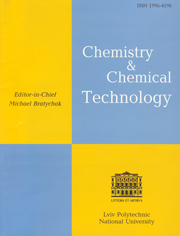Structuring and Electric Conductivity of Polymer Composites Pyrolysed at High Temperatures
| Attachment | Size |
|---|---|
| 423.4 KB |
[1] Jampolskii Y.: Doct. thesis, Institute of Chem. Phys., Moscow 1981.
[2] Enzel P. and Bein T.: Chem. Mat., 1992, 4, 819.
https://doi.org/10.1021/cm00022a014
[3] Aneli J., Khananashvili L. and Zaikov G.: Structuring and Conductivity of Polymer Composites, Nova Sci. Publ. New York 1998.
[4] Aviles M., Gines J., Del Rio J. et al.: J. Thermal Analysis and Calorimetry, 2002, 67, 177.
https://doi.org/10.1023/A:1013706501882
[5] Milinchuk V., Klinshpont E. and Pshezhetskii S.: Macroradicaly. Khimia, Moskwa 1980.
[6] Ingram D.: Free Radicals as Studied by ESR. Butterworths Sci. Publ., London 1958.
[7] Fialkov A.: Uglerod-Grafitnye Materialy. Energia, Moskwa 1979.
[8] Osugi J. and Hara K.: Rev. Phys. Chem. Jap., 1966, 36, 81.
[9] Kajiwara T., Inokuchi H. and Minomura S.: Jap. Plast. Age, 1974, 12,17.
[10] Shklovskii B. and Efros A.: Electronnye Svoistva Splavlennykh Poluprovodnikov. Nauka, Moskwa 1979.
[11] Shklovskii B. and Efros A.: Uspekhi Phyz. Nauk, 1975, 117, 36.
[12] Mott N. and Davis E.: Electron Processes in Noncrystalline Materials, 2nd edn. Clarendon Press, Oxford 1979.
[13] Dyson F.: Phys. Rev., 1955, 98, 349.
https://doi.org/10.1103/PhysRev.98.349










